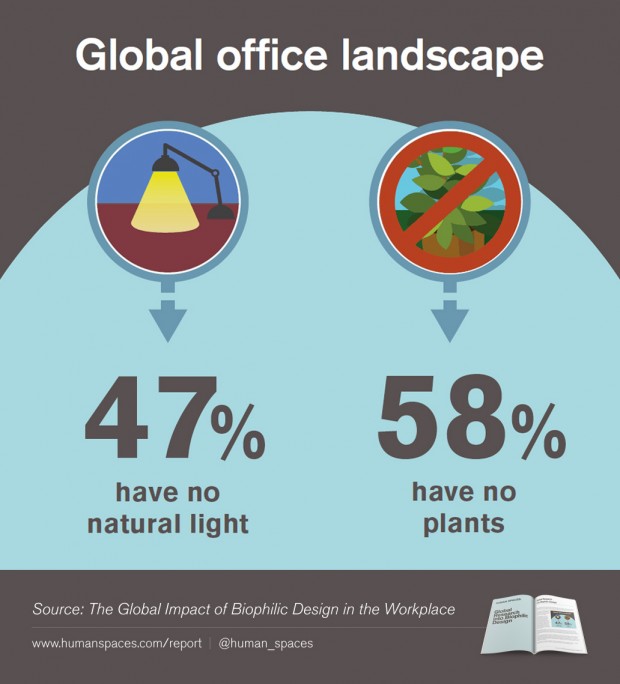Imagine an interview for a new job in which the candidates are asked not only about their professional experience and expertise or personality traits, but also about how much time they spend in nature both in and outside the city, what are the environmental causes they care about or how much time they spend disconnected from technology.
Imagine also a company in which employees are encouraged to spend time outdoors and reconnect with nature through special trainings and programmes. A company that also provides its employees with an environmentally friendly workspace with natural elements that enhance the well-being of people.
This scenario will soon become a reality as more companies will understand the risks associated with the nature-deficit disorder, but also the business benefits of promoting nature to their staff.
The concept of ''nature-deficit disorder" was launched by Richard Louv and is largely discussed in his two groundbreaking books: "The Last Child in the Woods" and ''The Nature Principle". Through the term “nature-deficit disorder”, Richard Louv describes the mental, physical and social disorders that can occur due to an increasing gap between people and nature. He also introduces the idea that ‘the more high-tech our lives become, the more nature we need to achieve natural balance’ (Louv, 2012).
The Human Spaces Global Report (2015), a study that analyzes the connections between the psychological well-being of people and the work environments, comes with new insights regarding nature deprivation, revealing, for example, that the lack of natural light in an office is linked to increased levels of stress among employees. Globally, 47% of employees have no natural light in their offices and 58% have no live plants in their workspace.
Instead of conclusions, we offer you a list with just a few of the benefits that could result from a higher dose of Vitamin N (for Nature) in your company:
- Increased productivity and job satisfaction
- Reduced stress
- Lower rates of absenteeism
- More openness and creativity
- More environmentally aware employees that could become internal ambassadors for the company’s sustainability goals
References:
- Louv, R. (2012), The Nature Principle, Chapel Hill: Algonquin books.
- The Human Spaces Global Report: The Global Impact of Biophilic Design in the Workplace (2015), available at: http://humanspaces.com/global-report/












Great article!
Go in and win! (Great success!)